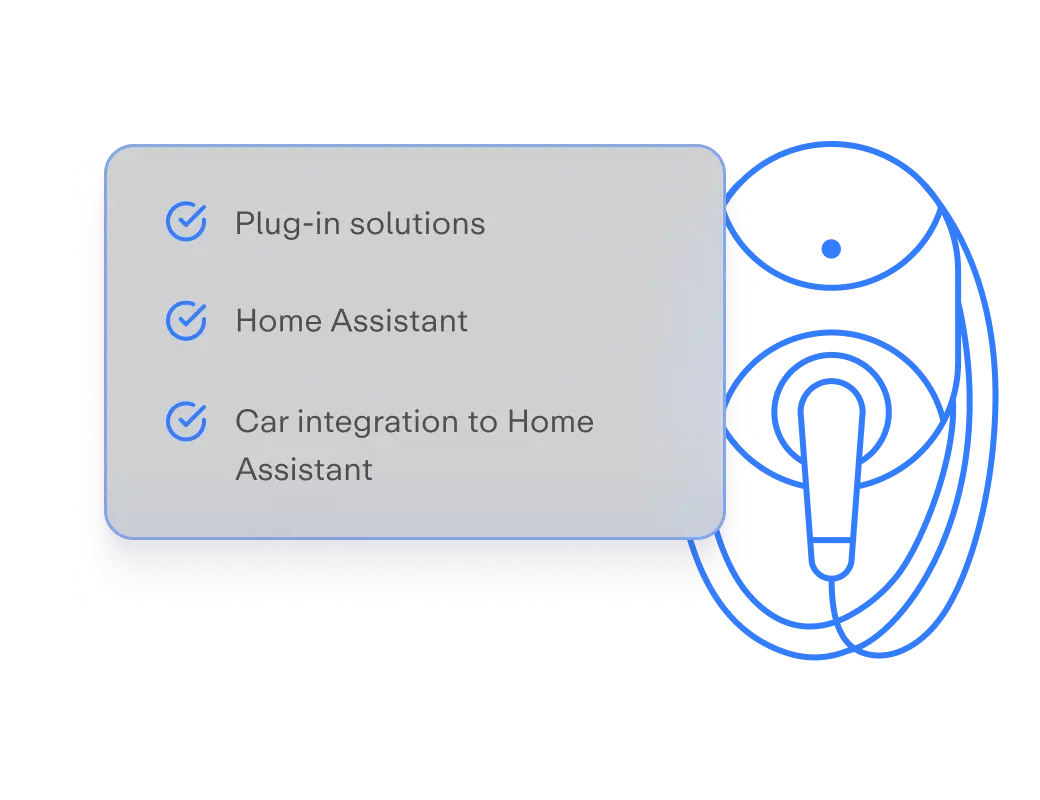Public API
Monta’s Public API lets you connect your EV charging to smart home systems or custom tools. Automate charging based on solar power, energy prices, or schedules. Access real-time data, track sessions, and build the setup that fits your life.
What is Monta’s Public API?
With Monta’s Public API, you’re no longer stuck with limited access to your EV charging data or a divide between the data and systems and tools you rely on at home. These limitations not only interfere with your personal experience but also undermine the broader mission of facilitating a successful green energy transition.
Monta’s Public API is designed for a new era of EV charging customisation. It connects your data from your Monta-integration – such as Charge Points, Charges, Vehicles – to any system of your choice. Adapt your EV charging experience to your unique needs and conditions at home with Monta’s Public API.
The problem
The call for greater control over EV charging systems is growing stronger among homeowners. As a result, they are eager to utilize data for crafting personalized charging experiences that cater to their lifestyle, weather and energy consumption patterns. However, the existing landscape lacks the flexibility and openness necessary to democratize EV charging fully.
The solution

The Monta Public API is our response to this demand. Monta’s Public API connects your Charge Points, Charges, Vehicles’s data to any system of your choice, laying the foundation for a bespoke EV charging experience that adapts to your unique needs and conditions.
This feature is designed for the tech-savvy end user who wants to start a charge at home only when certain conditions are met, such as house meter values, sunlight level, usage of home appliances, energy prices, point in time or days in week.
With the Public API, we’re putting the power of data and choice in your hands. Monta’s API enables users to build their own solution and integrate into multiple platforms like Home Assistant, Bosch Home Connect, Apple Home, Google Home, SmartThings, Home Connect and many more.
Who is it for?

Monta Public API is designed for tech-savvy homeowners and smart home enthusiasts owning their EV charge points and craving a personalized charging experience.
This tool is especially beneficial for those who are passionate about smart home automation and energy management. As time goes on, we’ll have even more convenient options like plug-in solutions, including integrations with popular tools like ‘Home Assistant’.
That means anyone using ‘Home Assistant’ can effortlessly connect with Monta, regardless of their technical expertise. In the meantime, Monta’s Public API is there to serve our tech-savvy users who are familiar with working with APIs.
Keep exploring and stay tuned for exciting updates!
What Monta Public API can do for you
Automated Monta Charger Integration
Vehicle-to-Home Integration
Visualize Charge Transactions
Empowerment via Monta’s Public API
Find the full API documentation, from guides to API references in our Public API Developer Hub.
The problem
Electricity consumption is vital for our daily activities, from powering our homes and offices to operating our cars. However, several factors can create imbalances in the electrical grid, potentially leading to blackouts or outages. This combination of factors, along with overconsumption, significantly raises the risk of sudden outages and blackouts that can impact large areas in a matter of seconds.
Outdated grid infrastructure
The current electricity grid was built many years ago and is struggling to keep up with the increasing electricity demand.
Fluctuations in energy demand
Unexpected spikes can overload the system, leading to blackouts, whereas excess energy can be wasted without proper storage capability during low demand.
Availability of traditional energy resources
When there is a shortage of traditional energy sources, power plants may be forced to scale back or shut down, leading to a strain on the grid and potential energy shortages.
Unstable renewable energy supply
The unpredictable nature of renewable energy sources like solar and wind power has made electricity generation more volatile.